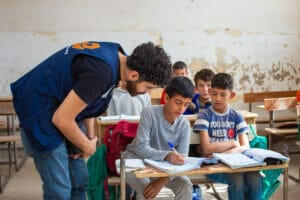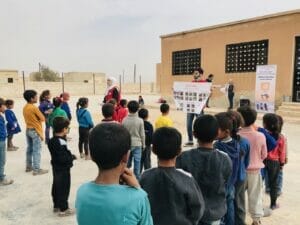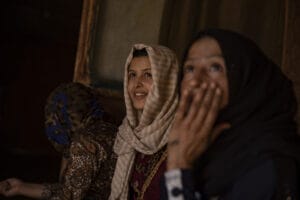
The violent earthquake that struck southern Turkey and northern Syria on February 6th has resulted in more than forty thousand casualties.
In Syra, after nearly 12 years of conflict, most of the buildings of the affected areas were already crumbling. This earthquake marks another disaster for the country: on February 17th, the numbers speak of over 4,400 casualties and 8,100 injured people in north-west Syria. However, buildings continue to collapse – also near Damascus -, and the numbers could still grow.
WeWorld's Emergency Unit has been activated immediately to check the condition of local staff in Aleppo, fortunately unharmed, and to recon the damages in order to assess immediate action to support the affected population.
Our local staff in Aleppo, one of the areas most impacted by the earthquake, is working from the first day to provide basic goods in the temporary shelters, including mattresses, cleaning kits and blankets, also to protect them from the cold temperatures.
In the areas where the water networks have been highly damaged by the earthquake, we are ensuring access to water and sanitation services through the reparation of the networks and the supply of drinking water with trucks. We have been able to reach almost 9.000 people, among which 38% are children.
In the areas affected by the earthquake, schools have been suspended. Only in Aleppo, 263 school facilities have been damaged and those undamaged are being used as temporary shelters for displaced families, where we are distributing first aid items.
Once again, millions of Syrian children are out of school. These include children we have supported in accessing a safe and inclusive education in the past years. Another alarming and long-term consequence of the earthquake is its impact on education, a sector that has been constantly suffering since the beginning of the Syrian crisis, in 2011.
Our intervention in Syria
We have been present in Syria since the beginning of the crisis in 2011, with multi-sectorial interventions on education, protection, WASH, and emergency response, including to Covid-19 and the cholera epidemic that broke out in 2022. One of the main sectors of intervention is Education in Emergency, giving thousands of children access to safe and inclusive education.



